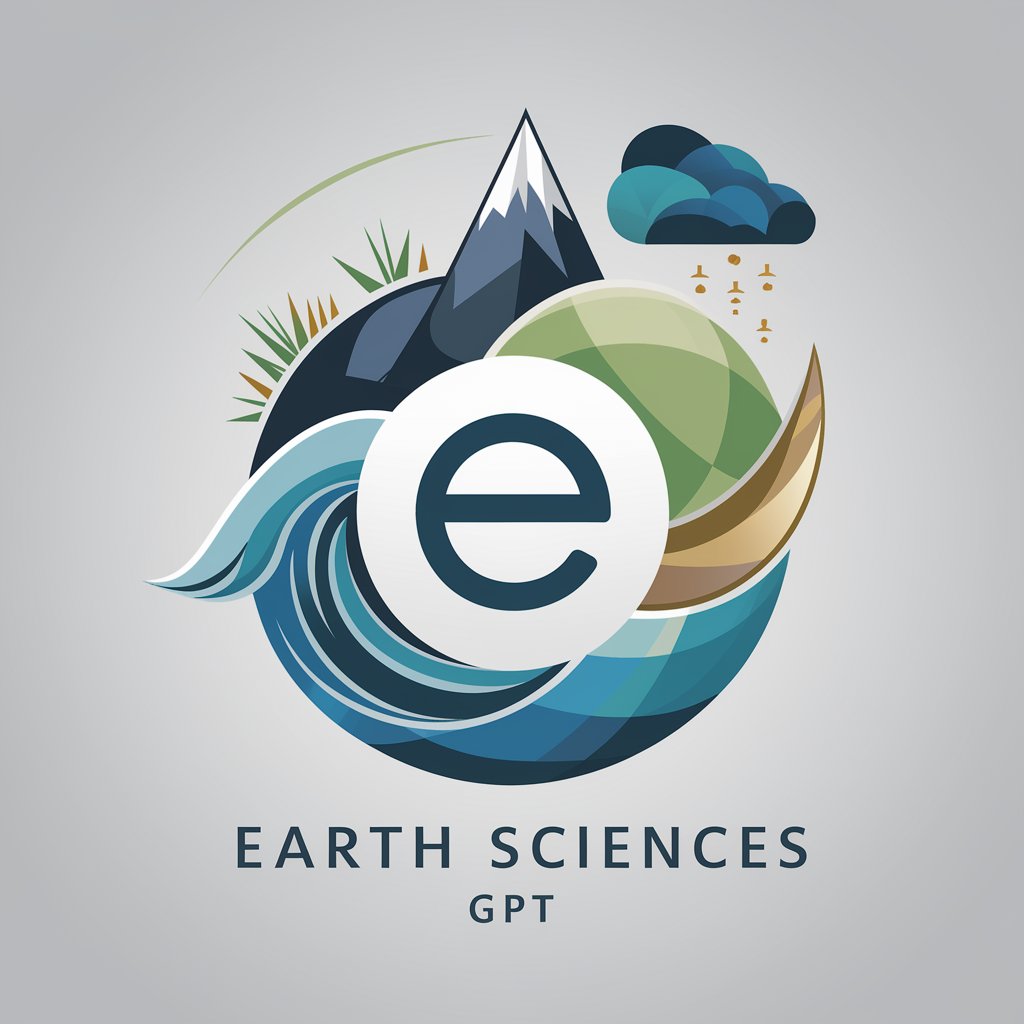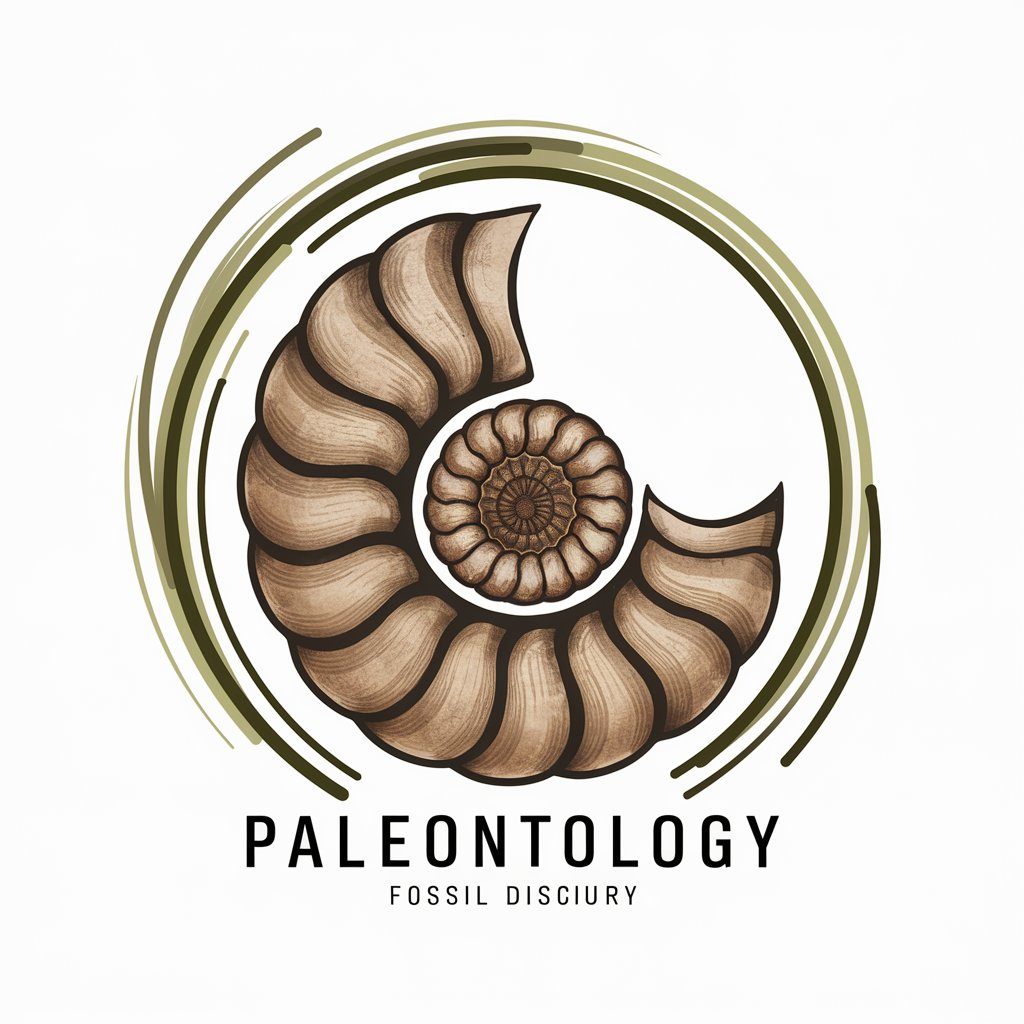Earth Sciences - Informative Earth Science Tool

Welcome! Let's explore the wonders of Earth sciences together.
Empowering Earth Exploration with AI
Explain the process of plate tectonics and its impact on Earth's surface.
Describe the water cycle and its significance in Earth's climate system.
What are the main types of rocks and how are they formed?
Discuss the factors influencing weather patterns and climate change.
Get Embed Code
Introduction to Earth Sciences GPT
Earth Sciences GPT is designed to serve as an advanced digital assistant tailored for the exploration, understanding, and education of the various disciplines within the Earth sciences. This includes geology, meteorology, oceanography, environmental science, and more. The primary purpose is to provide detailed, accurate, and accessible information on Earth-related scientific topics. Through engaging and educational content, it aims to make complex scientific concepts understandable to a general audience while maintaining scientific accuracy. For example, Earth Sciences GPT can explain the processes leading to the formation of mountains, the dynamics of the Earth's atmosphere leading to different weather patterns, or the significance of ocean currents in global climate regulation. Powered by ChatGPT-4o。

Main Functions of Earth Sciences GPT
Educational Resource
Example
Explaining the rock cycle, including the transformation of igneous rocks to sedimentary and metamorphic rocks through various geological processes.
Scenario
A teacher preparing lesson plans on geology uses Earth Sciences GPT to gather detailed explanations and examples to illustrate the rock cycle to students.
Environmental Awareness
Example
Detailing the causes and effects of climate change, including the role of greenhouse gases and the impact on global weather patterns.
Scenario
An environmental activist seeks comprehensive information on climate change impacts to prepare for a community awareness campaign.
Research Assistance
Example
Providing the latest findings and theories in the field of paleoclimatology, such as evidence from ice cores or sediment records.
Scenario
A university student working on a thesis related to historical climate changes uses Earth Sciences GPT to find up-to-date research and data for their literature review.
Practical Applications
Example
Advising on soil conservation techniques and sustainable land management practices to prevent erosion and degradation.
Scenario
Farmers and land managers consult Earth Sciences GPT for insights on best practices in soil conservation to enhance agricultural productivity and environmental sustainability.
Ideal Users of Earth Sciences Services
Students and Educators
This group benefits from using Earth Sciences GPT as an educational tool, offering a vast resource for learning and teaching. It can help clarify difficult concepts, provide examples for better understanding, and assist in developing curriculum content.
Researchers and Scientists
Professionals in the field of Earth sciences can use this GPT to stay updated on the latest research, explore complex scientific questions, and gather data for their work, facilitating deeper insights and fostering academic collaboration.
Environmental Advocates and Policymakers
Those engaged in environmental advocacy and policy development will find Earth Sciences GPT valuable for accessing detailed information on environmental issues, supporting evidence-based policy making, and raising public awareness on important topics such as climate change and conservation.
General Public with Interest in Earth Sciences
Curious individuals seeking to expand their knowledge on Earth-related topics can explore a wide range of subjects in an accessible format, making complex scientific information understandable and engaging for personal learning or casual interest.

How to Utilize Earth Sciences
Start Your Journey
Access a free trial at yeschat.ai without the need for signing up or subscribing to ChatGPT Plus.
Identify Your Needs
Determine specific Earth Sciences topics or questions you need assistance with, such as geological formations, climate change, or environmental conservation.
Engage with the Tool
Use the search and query functions to find specific information or ask direct questions related to Earth Sciences.
Apply Knowledge
Use the insights and data provided to assist in academic research, environmental planning, or personal education.
Feedback and Improvement
Provide feedback on your experience to help refine and improve the Earth Sciences tool for future interactions.
Try other advanced and practical GPTs
40
Unlocking the Mysteries of 40 with AI

CraftMaster
Empower your creativity with AI

Home Decor
Elevate Your Space with AI-Powered Design Insights

Professional Psychologist
AI-powered Emotional Support and Guidance

Evans AI
Empowering crypto investments with AI-driven insights.

Thumbnail Genius
AI-powered Thumbnail Design Simplified

Your Everlasting Supporter
AI-powered emotional support at your fingertips

Fossils
Unearth the past with AI-powered paleontology

Bread Maker
Empowering your bread-making journey with AI

WB Agent
Optimize Listings, Boost Sales

NanoGiants Onboarding
Empower Your Onboarding with AI

"មេធាវី"
Empowering Legal Solutions with AI

Common Questions about Earth Sciences
What is geology and how is it relevant today?
Geology is the study of the Earth's physical structure and substance, its history, and the processes that act on it. It is relevant today for natural resource management, environmental protection, and understanding natural hazards.
How can meteorology aid in disaster preparedness?
Meteorology, the study of weather, helps predict and understand weather patterns, aiding in disaster preparedness by providing early warnings for hurricanes, tornadoes, and other severe weather events.
What is the significance of studying oceanography?
Studying oceanography is crucial for understanding climate regulation, marine biodiversity, and global ecosystems. It impacts weather forecasting, environmental conservation, and maritime industries.
How does Earth Sciences contribute to environmental conservation?
Earth Sciences provide critical data on natural resources, biodiversity, and climate change, guiding sustainable management practices and conservation efforts.
What are the practical applications of remote sensing in Earth Sciences?
Remote sensing techniques are used in Earth Sciences to gather data on land use changes, deforestation, resource management, and environmental impact from a distance, enhancing our understanding and management of the Earth's surface.
